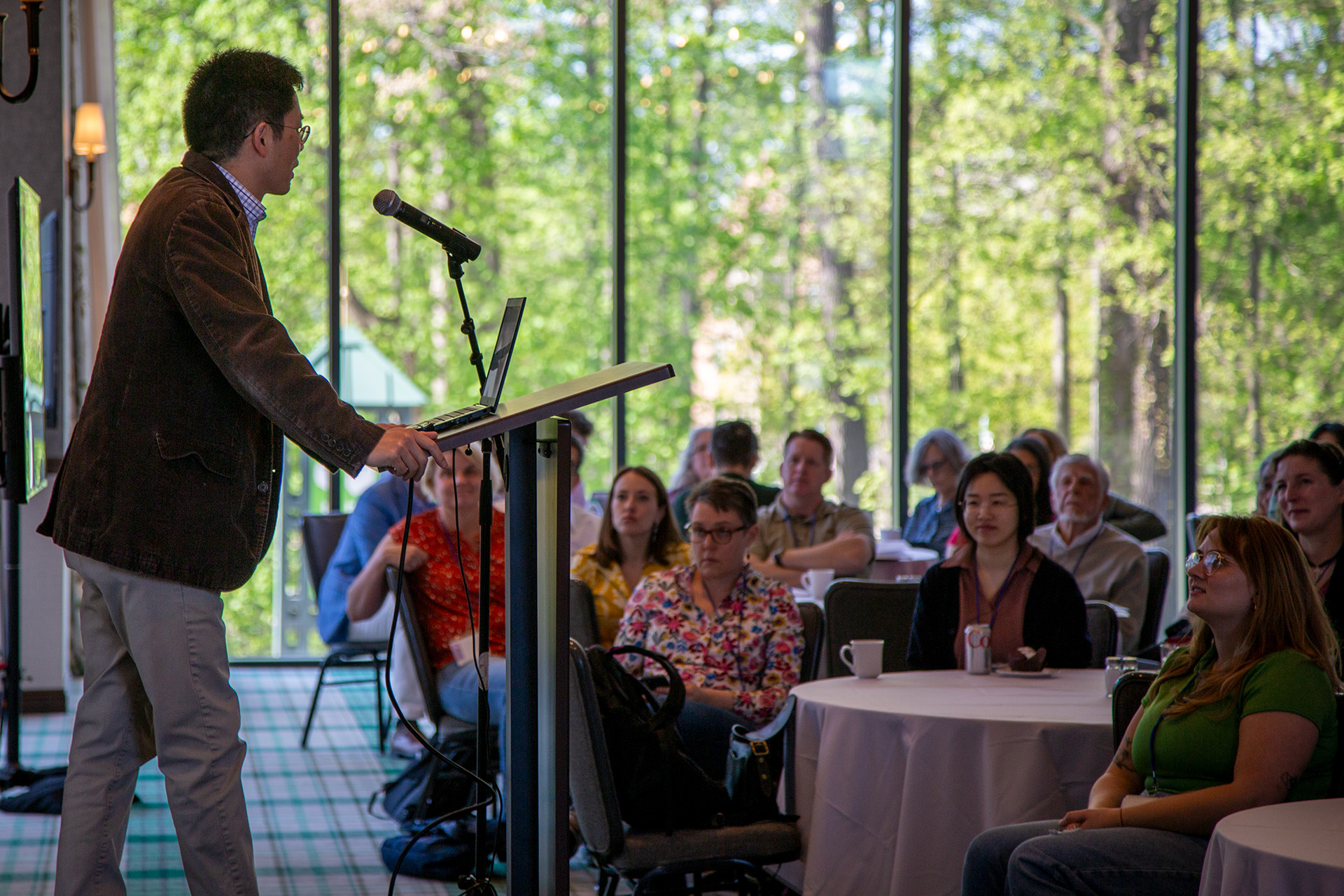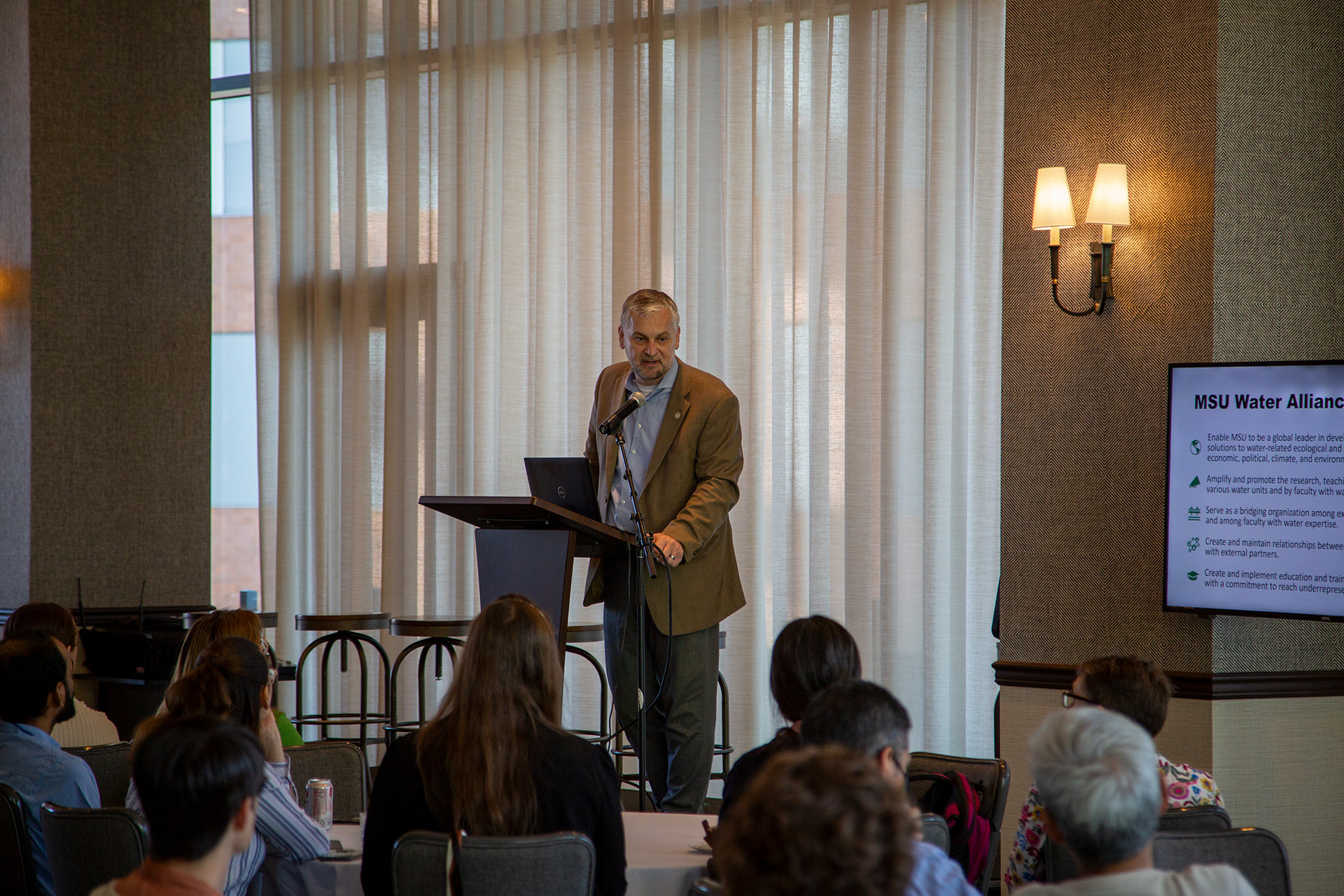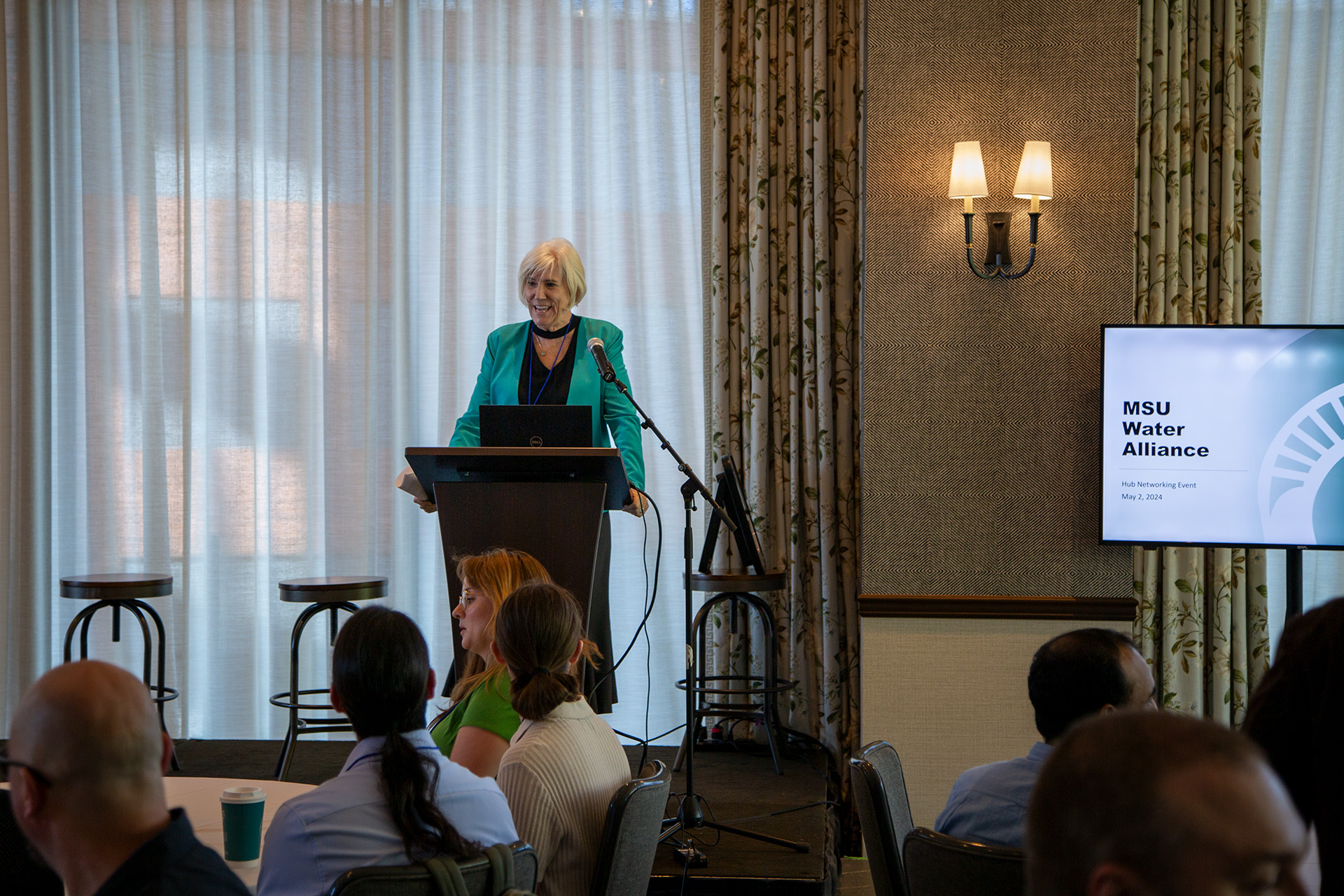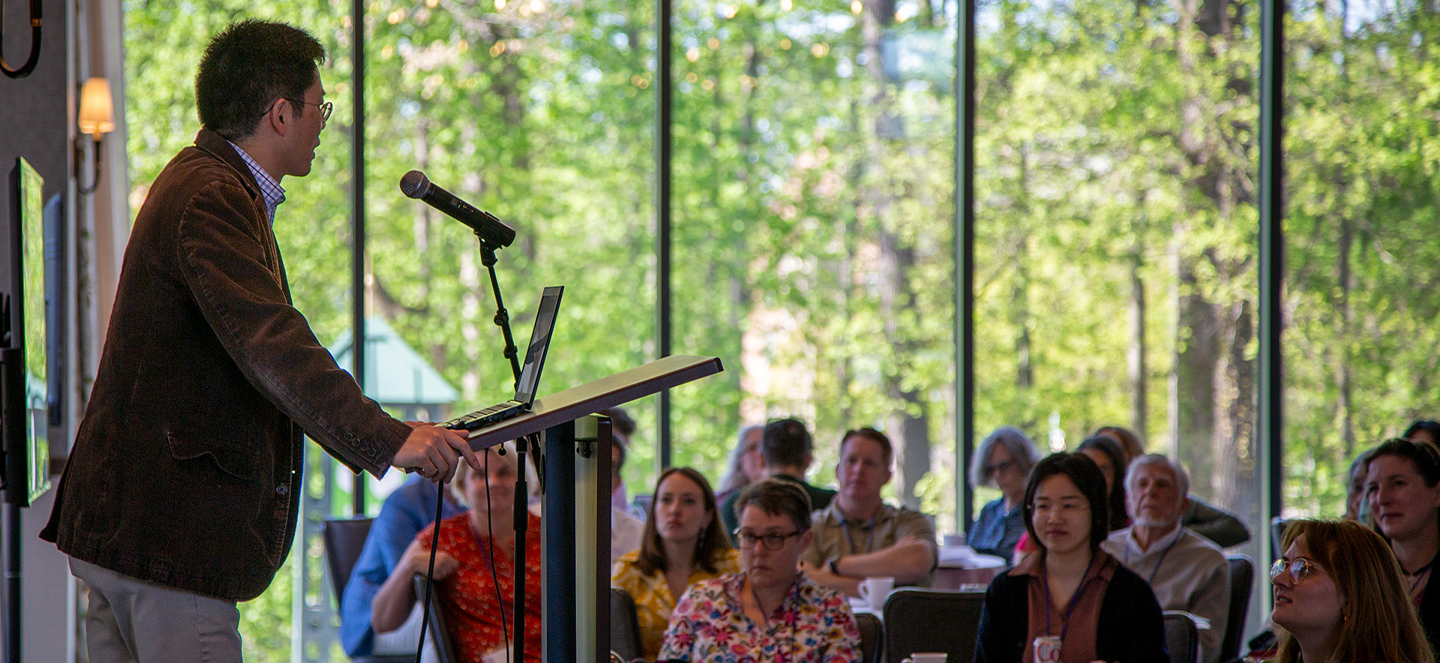Water experts from 39 units across Michigan State University came together to collectively tackle 21st century water problems at the MSU Water Alliance hub networking event.

Water experts from 39 units across Michigan State University came together to collectively tackle 21st century water problems at the MSU Water Alliance hub networking event.
Photo credit: Michelle David
Faculty at the May 2 event brainstormed projects and possible directions for the Alliance’s three hubs – Supply Sustainable Food, Water and Energy; Sustain Aquatic Ecosystems and Build Resilience; and Ensure Water Security for Healthy People, Animals and Planet. The goal is for each hub to accomplish at least one project in the next year.
In the main session, State Rep. Phil Skaggs updated the group on the progress of a bill that would establish a statewide sanitary code for home septic systems. Attendees also heard advice and recommendations from the Alliance’s External Advisory Committee (EAC), made up of water experts and professionals around the state and nation.
As the group gathered in the ballroom of The Graduate Hotel, Alliance Director Joan Rose challenged attendees to make the coming year a “year of action.” The Alliance was created not just to talk about problems, but to do something about them. Rose said this day was a launching point for exciting projects, research and community engagement.
She noted the collective strength of faculty from agriculture, natural resources, engineering, social science, human medicine and even the arts. Together, faculty can better solve problems and attack water issues from different angles.
“We want our work to be meaningful, our data and research to be useful, and our science to be translated,” she said. “Let’s be bold and exciting about our ideas and putting them down on paper.”
Xiaobo Tan, an MSU Foundation professor and the Richard M. Hong Endowed Chair from the College of Engineering, said working across disciplines is also a critical part of the WaterCube National Research Traineeship, which is supported by the Water Alliance. The program is currently seeking Ph.D students to be trained in the intersection of water, data and social sciences.
“It’s not just about education,” Tan said. “It’s an opportunity for fostering collaborative research.”

State Rep. Phil Skaggs discussed the need for a statewide sanitary code at the Water Alliance hub networking event.
Photo credit: Michelle David
A word from Rep. Skaggs
An emergent threat to Michigan’s water is the high number of homes with failing septic systems. Rep. Phil Skaggs (D-East Grand Rapids) reminded attendees that while Michigan is the only state without a statewide sanitary code, it also has the highest number per capita of septic systems in the country. That means that while 30 percent of all residential homes have on site wastewater treatment, there is nothing requiring those systems to be inspected—and no mechanism to force failing systems to be replaced. As a result, beaches closures and no contact orders due to high levels of E. coli have become common. Testing by Rose’s lab has confirmed that the source of the E. coli is human waste.
Several bills have been proposed over the years to remedy this problem, but none have made it to the governor’s desk. Skaggs said he’s hopeful that the current version, House Bills 4479 and 4480, will go the distance.
MSU faculty can help by reaching out to their representatives, the chair of the House Committee on Natural Resources, Environment, Tourism and Outdoor Recreation, and even Gov. Gretchen Whitmer.
“Your voices as experts will be listened to,” Skaggs said. “Please use your expertise to help us to get this bill on the agenda and finally live up to the Pure Michigan goal that we all have. We simply don’t want to have pollution, and no one has the right to continue to pollute our waters.”
Hubs at work

Water Alliance Director Joan Rose greets attendees at the Water Alliance hub networking event.
Photo credit: Michelle David
After lunch, MSU faculty split into groups to dive into their respective hubs. The breakout rooms buzzed with conversation as hubs broke into small groups and shared ideas. Hub leaders jotted on giant sheets of paper and scribbled on Post-it notes that they stuck to walls.
Hub leaders shared potential projects afterward in a debriefing session. While the hubs still have work to do, they’re interested in planning workshops and creating a series of videos about water topics and questions. Whatever the hubs decide to do, they said, a key aspect will be community engagement.
The Water Alliance will share more details soon as the hubs continue to meet and solidify projects.
As the hub projects take shape, EAC members urged the hubs to plan projects that will give them early wins to drive momentum forward. They were energized and encouraged the hubs to keep that excitement going.
Rose told the group that engagement will be a critical part of the Water Alliance’s success. Our hubs must not only engage the community, but also industries, the Chamber of Commerce, water utilities, economic development agencies and other universities.
Faculty know how to research and educate, Rose said. Now, we must also reach out to all other interested communities.
Story by Bethany Mauger
